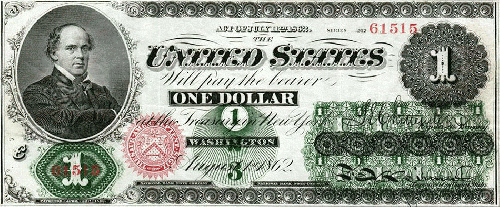1. The TPP's ISDS Provisions Are A Grave Threat To The Public Fisc, But Not To Monetary Sovereignty [1]
Another Danger of the TPP: It Sacrifices Monetary Sovereignty , by Joe Firestone (JF), defines monetary sovereignty as follows: [2]
Right now, the US [3] fulfills the three essential conditions for monetary sovereignty: 1) it issues its own non-convertible [fiat] currency, 2) which it allows to float on international currency markets; and 3) it owes no debts in any currency other than dollars.
JF's thesis is (boldface in orig.):
Passing the TPP would compromise the monetary sovereignty of the United States and subject us to the influence of currency markets on the prices we may have to pay for foreign currency under a plausible scenario allowed by the Agreement. Specifically, I don't see anything in the TPP investment chapter requiring that damages be awarded by the Investor State Dispute Settlement (ISDS) tribunals in the sovereign currency of nations incurring damage awards for lost profits, but only that they be awarded in a "freely usable currency" as specified by the IMF.
The link references a January 20, 2015 "working" draft of the TPP's Advanced Investment chapter, which on page 3 incorporates by reference IMF Article XXX(f) :
A freely usable currency means a member's currency that the Fund determines (i) is, in fact, widely used to make payments for international transactions, and (ii) is widely traded in the principal exchange markets.
JF clarified his position in replying to my comment on the New Economics Perspectives blog :
No, I don't seriously think that the IMF will decide that the dollar isn't a freely usable currency in international trade. But that's not the issue. The issue is whether an ISDS Court can decide to award damages to a multinational denominated in a currency different from the currency of the nation having to pay the damages.
Given that the US can pay any such damages using equivalent US dollars, JF inveighs against a distinction without a difference. His monetary sovereignty broadside is frivolous.
Substantively, JF raises concerns only re the potentially adverse effect of currency exchange and interest rate variations over a limited period, in the event of an award against the US in a foreign currency, pursuant to the assessment of damages at (TPP draft, page 12) "fair market value on the date of expropriation, plus interest at a commercially reasonable rate for that currency, accrued from the date of expropriation."
For sure, US fiscal sovereignty would be overarchingly sacrificed by blindly enacting swathing claims against governments for lost corporate profits, opaquely decided by sweetheart courts. JF's proposed rule--that damages be awarded in the liable government's currency--should be added to the TPP, but only because (1) damages would naturally accrue in that currency, and (2) risks due to exchange and interest rate changes are properly allocated to the investing corporations, under basic free market principles.
The TPP's sub silentio lack of any such standard threatens to palm off this risk on governments. However, I see no hidden agenda encroaching upon monetary sovereignty. On the contrary, ordering payment in SDRs--which could be construed as creep in a mission to impose an international currency, like the Euro--is affirmatively excluded by the IMF's definition of a freely usable currency as a "member's currency."
2. Terminological Inexactitudes And Ye Olde Seigniorage WarJF's article begins with the announcement that:
Right now the US fulfills the three essential conditions for monetary sovereignty: 1) it issues its own non-convertible [fiat] currency...
But by statute, the US does not issue the bulk of the nation's currency--not even if the Federal Reserve Board is construed as a government agency. Under Title 12 of the US code, Federal Reserve bank notes and digital bank reserves are issued by the privately owned Federal Reserve banks, and only to a limited degree as directed by the Board. [4] In particular, Fed notes (versus digital reserves) are issued automatically, to meet the public's demand for cash. The US Bureau of Engraving and Printing merely prints Fed notes, which the Fed banks buy at cost. The Fed banks now issue essentially all currency as digital reserves, in exchange for assets at face value. When Fed notes are issued per public demand, digital bank reserves are docked by that amount.
Under Title 31 of the US code, the US does issue the nation's coins, and it can issue United States (versus Federal Reserve) notes, albeit only to a paltry total of $300 million, per 31 U.S.C. 5115(b):
The amount of United States currency notes outstanding and in circulation-- (1) may not be more than $300,000,000; and (2) may not be held or used for a reserve.
Why do JF and dominant economic powerhouses--including the Fed--insist that the US government issues Federal Reserve notes, knowing that this language is against longstanding legal and professional usage? As monetary policy bloggers well know, the justification given is that Fed banks are part of the government, being chartered creatures of statute, whose commercial owners lack ordinary voting rights. The statutory dividend of 6% is awkwardly brushed aside, as negligible. Whatever the reason for inexactitude, the effect is to preempt and even ridicule the very idea that the US might start issuing more (if not all) of the currency.
This suppression is consistent with the FAQ "What are United States Notes and how are they different from Federal Reserve notes?" on a Treasury website that boasts top priorities of integrity, transparency, and public education:
(Note: You can view every article as one long page if you sign up as an Advocate Member, or higher).






